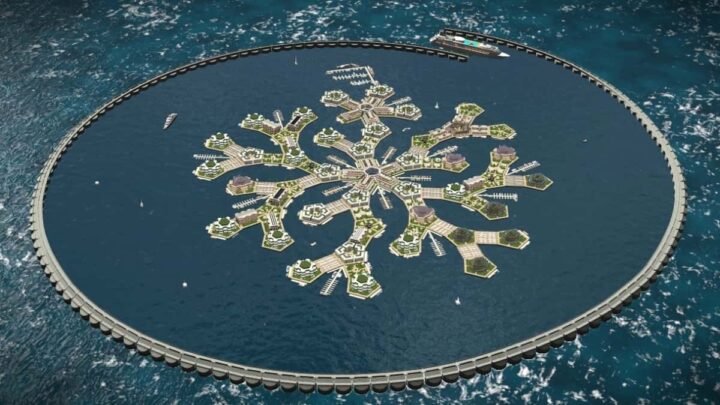There are more than eight billion people in the world, and the United Nations estimates that we will exceed 11 billion in the year 2100. If anyone is thinking about inhabiting Mars, Admiral Gouveia e Mello suggests that we will do so within thirty to fifty years. . For years, they live in the sea.

Projects studying the potential colony of humans on Mars are ambitious and impressive. Indeed, with the Earth home to billions of people and seeing its resources under pressure every year, visionaries fear for the future and design alternatives.
From Admiral Juvia y Milo's point of view, there is a lot to explore here, on Earth, since two-thirds of the planet is uninhabited.
On the podcast Bitalk - Portuguese BusinessAvailable on YouTubeAdmiral Gouveia e Mello spoke of the potential of the sea and predicted that we would inhabit it within 30 to 50 years: “We, in fact, will inhabit the great sea spaces.”
Although we are nomads in these spaces, because we move through them, this may change in the future.
Humans have been practically equal, in terms of the scale of their evolution, for about a million years. Only in the last thirty thousand years have we made a giant leap.
In his view, this leap occurred because humans became sedentary and created societies that were specialized and better organized. As he said: “The sea is still nomadic, but we will become settled in the sea; we will inhabit the sea; humanity will inhabit the sea.”

Admiral Gouveia e Melo. Credit: Roy Gaudencio | general
The future at sea may be closer than people think
Since two-thirds of the planet is uninhabited, Admiral Gouveia e Mello expects “sea cities” to become a reality within 30 to 50 years, since current technology already allows this to work.
Emphasizing his point, he explained that although the earthquake on land is devastating, the tsunami wave in the middle of the sea, in the middle of the ocean, “is a wave 30 centimeters high.”
We're talking about a new geography of the future, [que] It will be located at the crossroads of major marine traffic routes.
In Admiral Gouveia e Mello's view, at sea, it will be possible to develop business platforms, service systems, cities... This "completely new world" is 30 to 50 years away.
Do you agree that it would be possible to fill the sea?

